Rosina Lippi's Blog, page 19
June 8, 2015
Is Using ‘Firstly’ Grounds for Summary Execution?
Lori Nixon asked a question on my Facebook page, and I told her that I’d reply over here. Her question:
Knowing that you have studied linguisitics I thought you might be the person to ask this question of. If I am totally off base by posting this question to your FB page, I apologize.
My question; every time I hear the word firstly the hair on the back of my neck stands up.I’ve been known to yell out loud, to no one in particular “that is NOT a word.” I now realize, hearing it more and more often, that I very well may be mistaken. Is use of the word “firstly” correct?
Firstly (cough) I’m happy to get questions about linguistics here, there, anywhere.
There are two approaches to this firstly business. The one you were taught in school (and the reason Lori gets all itchy when she hears it) goes something like there is a right and a wrong way to say xxxx or bad grammar is evidence of a lazy mind and/or low intelligence. We are all taught that in school, because in school they are teaching you to read and write. The written language is different from the spoken language in a dozen ways, but the most important (for this conversation) is this: the written language conveys complex information over time and space. It needs to be consistent, goes the reasoning. And quite logically.
Did you know that Shakespeare used a lot of alternate spellings when he signed his name? Spelling was a fluid thing back then. The printing press made uniformity in spelling (and other aspects of language) a priority. Printers could hardly make a profit if they had to print the Bible in twenty different dialects of English — and English spoken in Cornwall and in Yorkshire were very different. The solution was to pick one variety of English, call it ‘correct’ and everything else ‘wrong’ and to convince the general public to go along with this. And they pulled it off. Amazing, really, to think about.
All of this (abbreviated) background is just to make a point: there’s a prescriptivist approach to language that began to develop with the invention of printing. Somewhere along the line somebody (many somebodies, but not in an organized fashion) decided that if there were rules for the written language to make it more useful and perfect, there ought to be rules for the spoken language. Spoken English should be consistent and homogeneous. For that to happen, there had to be one spoken variety of English that would be seen as good or right or grammatical. And again: the general populace was drawn into accepting this as truth.
So that’s the prescriptive approach you learned in school. In that world view, ‘firstly’ is not a word. As evidence people will say: it’s not in the dictionary.
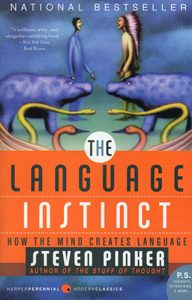 Now here comes the other approach.
Now here comes the other approach.
Academically trained linguists study human language. The acquisition of language is hard-wired into the human brain, whereas writing is a skill that has to be laboriously taught and practiced. Most linguists study the spoken language.
The spoken language is inherently flexible, always changing, never static. Hard-line prescriptivists insist that it is possible to have a homogenous, non-varying spoken language, if only we were disciplined enough to speak correctly. But any linguist will tell you that an idealized, homogenous variety of any language is a myth. You could propose that the world would be an easier place to live in if we were all the same height and weight, but variation is a biological imperative in all aspects of being human. Including language.
So the prescriptivist says: You hurt my ears when you speak such slovenly English. ‘Firstly’ is not a word. Off with your head. Off with all the heads of all the people who say ‘firstly’ because that’s the only way to preserve the beauty of our language.
The linguist says: Okay, we’ve got a morphological neologism that is spreading its wings. Let’s see where it’s showing up (in space) and who’s using it (sex, age, and other factors).
 Except the origin and spread of ‘firstly’ — which drives the prescriptivist to the point of murder — is only vaguely interesting to the linguist. It’s one small phenomenon in a universe of shifting language. Academic linguists study things like huge shifts in the vowel systems of people who live in a wide arc from Chicago to Buffalo, something that’s been going on for a long time. They study the syntax of multiple negation in specific varieties of English, or compare that point of syntax across varieties of English. To name just two of a dozen directions a linguist might go. The Wikipedia page on linguistics has a long list of linguistic subfields.
Except the origin and spread of ‘firstly’ — which drives the prescriptivist to the point of murder — is only vaguely interesting to the linguist. It’s one small phenomenon in a universe of shifting language. Academic linguists study things like huge shifts in the vowel systems of people who live in a wide arc from Chicago to Buffalo, something that’s been going on for a long time. They study the syntax of multiple negation in specific varieties of English, or compare that point of syntax across varieties of English. To name just two of a dozen directions a linguist might go. The Wikipedia page on linguistics has a long list of linguistic subfields.
 The bottom line is this: as a linguist I have to say to you that ‘firstly’ is a perfectly cromulent word. Click the link, read the bit in Wikipedia. It will make a lot of this come to life in a far more entertaining way. I’ll wait here while you do that.
The bottom line is this: as a linguist I have to say to you that ‘firstly’ is a perfectly cromulent word. Click the link, read the bit in Wikipedia. It will make a lot of this come to life in a far more entertaining way. I’ll wait here while you do that.
To summarize: You won’t find cromulent (or firstly) in a dictionary, but new words pop up constantly and a lot of them end up embiggening the language. Despite the howls of protest from third grade teachers everywhere, you simply can’t nail the spoken language down. This is true for new words and for the way we string words together into sentences and every other aspect of language.
The variable nature of language actually serves an important function. Variation is emblematic. And I’ll stop there because by now I’m boring everybody to death. And if you are just waking up now, the short answer: Firstly is in fact a word.
Tweet

June 7, 2015
Talk to me: Do any of these books interest you?
Trying to put together a varied list of books that had an impact on me, but now I’m wondering: is this at all interesting? Are you interested primarily (and maybe exclusively) in novels?
Tweet

June 6, 2015
Some of the Books that are Stuck in my Brain, Part I
Apparently people like book recommendations, so welcome to the ones (some of the ones) stuck in my brain. Note: Not every book will work for every reader. But these are books that grabbed a spot in my brain and have never moved out.
A little bit of everything. In no particular order. Those of you who have hung around this weblog for the ten plus years it has been drifting in and out of existence will have heard me mention some of these. But probably not all.
Dorothy Dunnett. 1991. Niccolo Rising. Volume 1 of The House Of Niccolo – 8 Volumes. New York: Vintage Books.
This is, simply put, my favorite historical novel of all time. It’s not a quick read, but it is tremendously rewarding. And funny. And moving. And you’ll learn a ton about 15th century Europe.

Irene Hunt. 1966. Up a Road Slowly. New York: Follett.
Reading this book as a twelve year old, I remember how the imagery struck me. It was the first time that the language lifted itself off the page, and I never forgot what that felt like. It’s a quiet but very moving story. I re-read it a couple years ago, and I was glad to find out that I hadn’t outgrown it.

Howard Zinn. xxxx. A People’s History of the United States.
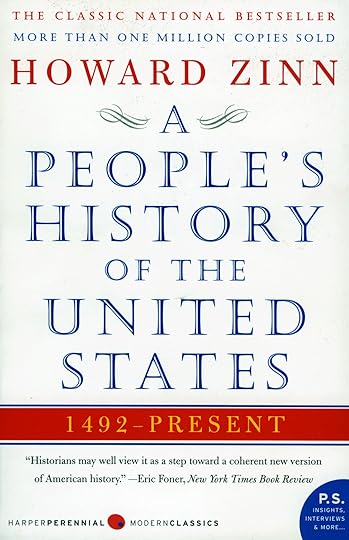
William Styron. 1979. Sophie’s Choice. New York: Random House.
This novel is set in Brooklyn and NYC post WWII. I thought about it for months after first reading it, and still think about it quite often. It’s the juxtaposition of innocence (Stingo) and despair (Sophie), and the way that tragedy blossoms on the page where they meet.

E. Annie Proulx. 1993. The Shipping News. New York: Scribner.
This is a quirky beautifully constructed love story about man who is rescued, against all expectations, from his loneliness. Proulx is one of the few truly original stylists writing today.

Jacquelyn Mitchard. 2011. Second Nature. New York: Random House.
Jacquelyn Mitchard is about my age; she’s from Chicago, and she has an extended Italian family (the Cappadoras) of recurring characters (they show up in at least three of her novels). For all kinds of personal reasons I love these novels, but this one I liked especially because of the main character: Sicily Coyne. At thirteen she is terribly disfigured in a fire that also kills her firefighter-father. It’s not hard to imagine what it would be like for a girl in her teens to suddenly have no face, but the story isn’t really about that. It’s about a reversal of fate and how she rebuilds a life around that reversal. I’ve re-read this novel a couple times and I’ve listened to it on unabridged audio, and every time I’m taken aback by Sicily. The highest compliment I can pay is the strong sense that if I could, I’d love to live in a neighborhood with all these characters.

Helen Wells. 1943. Cherry Ames, Student Nurse. New York: Grossett & Dunlap.
I saved my money until I could afford the next volume in the Cherry Ames series and eventually I had all of them. It’s amazing where Cherry Ames could find work as a nurse. And I loved her to distraction. I had every intention of becoming a nurse (and apparently, many nurses my age and older credit Cherry Ames with their decision to go to nursing go) until life intervened.

Laurel Thatcher Ulrich. 1991. A Midwife’s Tale: The Life of Martha Ballard, Based on Her Diary, 1785-1812. New York: Vintage Books.
This is not fiction, but I have never come across a better exploration of the life of a woman who led a quiet life in the early years of the country.

A Midwife’s Tale
Tweet

Winners – signed ARC, The Gilded Hour. And other stuff.
So here we go. The two people who will received a signed ARC of the new novel are:
(1) MaxMomVT who left her comment on 26. April 2015 at 5:36 pm
(2) Oupelai whose comment is dated 24. April 2015 at 9:52 am
MaxMomVT also won the coin toss, so she will get the BookExpo America loot as well as some other good bits and pieces. Now I need mailing addresses for both of you, so please use the contact form to get in touch. Or email. Whichever suits. And congratulations. Happy reading.
Tweet

June 4, 2015
The least interesting question about Edna Ferber
I generally avoid the Grammarly blog because … well, if you’ve followed me for any amount of time, you probably know that I have a PhD in linguistics and I find nothing helpful or amusing in endless debates about where to put commas, and titles like this one: 5 Verb Mistakes You Should Stop Making Today make me break out in hives. Academic linguists are not prescriptive. We study language as it exists.
This is not to say that Grammarly is without merit. It created a lucrative niche by coming up with software that evaluates written language and “corrects contextual spelling mistakes, checks for more than 250 common grammar errors, enhances vocabulary usage and provides citation suggestions.” It is a for-profit subscription service with a lot of subscribers. But they also post about language and writing more generally, and that’s the subject here.
There’s a post dated yesterday with the title 5 Authors Who Died Old Maids.
I am disturbed by this post for a whole slew of reasons. “Old Maid” strikes me as demeaning, to start, but the bigger problem is the premise.
There is no real way to know about the personal lives of most 19th century women writers unless they made a public statement — and even then, there’s lots of room for debate. (And let me pose a question: do we need to know or is this garden-variety nosiness about famous people?)
Five authors, none of whom married. Should we assume that they would have liked to marry? That they were unhappy about never marrying? That’s a leap I’m not prepared to take, primarily because there are unstated options. Today or in the 19th century a woman might marry for a lot of reasons — economics, family pressures, love — and she might never marry for even more. Unrequited love, certainly. But it should be obvious that some women aren’t (and were not) interested in marriage in the traditional sense.
There’s no clear evidence regarding Edna Ferber’s sexuality, but Louisa May Alcott was pretty open about her attraction to women. From the introduction to Little Women (Penguin Classic edition) “… Alcott later commented with pre-Freudian candor on her own feelings: ‘I am more than half-persuaded that I am a man’s soul, put by some freak of nature into a woman’s body … Because I have fallen in love in my life with so many pretty girls and never once the least bit with any man.'”
The post author states:
…plenty of female writers chose to stay single their entire lives. For these women, marital status had no bearing on their creativity.
I’m not sure how to read that. Does she mean “For these women, staying single had no bearing on their creativity” ? If so, is the underlying assumption that married women are more (or less) free to pursue creative impulse?
The bottom line is, I need to stay away from Grammarly. But I had to point out for my own peace of mind that women writers in the 19th century were just as complicated as women are today. Whether or not they married is possibly the least interesting thing about them as individuals.
Tweet

Good Advice-Bad Advice-Enough with the Advice, Already & a Poll
It’s mind boggling. If you google ‘writing advice’ you get 479,000,000 hits. On YouTube you get 2,120,000.
I am guilty of this, too. Scattered through this monstrosity of a weblog are my ‘rules of thumb.’ Why do I post them? I’d like to think I’m trying to be helpful. Or maybe I’m just out for the glory of it.
Nah. There’s not much glory in a weblog about reading and writing. And here’s a thought: maybe you don’t care about this kind of advice at all. Maybe you want book reviews and nothing else.
The only way to get to the bottom of this is to ask you: what makes you come read a weblog? There are two ways to give me your thoughts, and I hope you’ll use both of them.
Note: There is a poll embedded within this post, please visit the site to participate in this post's poll.
If you leave a comment please be specific. Be honest. You can’t hurt my feelings (you don’t last long in this business unless you can handle criticism). And remember that every time you leave a comment you have entered into the BIG BIG Giveaway that will happen at the end of the summer.
There is a huge amount of advice out there, and a lot of it strikes me as poorly thought out. But in the great big mountain of do-this-don’t-do-that there are some treasures. I love what Kurt Vonnegut has to say about writing. Here are his eight basics.
Use the time of a total stranger [your reader] in such a way that he or she will not feel the time was wasted.
Give the reader at least one character he or she can root for.
Every character should want something, even if it is only a glass of water.
Every sentence must do one of two things—reveal character or advance the action.
Start as close to the end as possible.
Be a sadist. No matter how sweet and innocent your leading characters, make awful things happen to them—in order that the reader may see what they are made of.
Write to please just one person. If you open a window and make love to the world, so to speak, your story will get pneumonia.
Give your readers as much information as possible as soon as possible. To heck with suspense. Readers should have such complete understanding of what is going on, where and why, that they could finish the story themselves, should cockroaches eat the last few pages.
 This is from his preface to Bagombo Snuff Box. Note that he goes on to say: every single rule can be broken, and has been broken successfully. But that’s not where you start.
This is from his preface to Bagombo Snuff Box. Note that he goes on to say: every single rule can be broken, and has been broken successfully. But that’s not where you start.
*Featured image by Magnetic-Eye / Deviant Art
Tweet

I’m going to pull a name out of the hat…
… on Saturday. So if you’re interested in a signed ARC of The Gilded Hour be sure to jump over here to get yourself signed up for the drawing.
After two names have been drawn at random, I’ll toss a coin and that winner will get
1. the signed ARC
2. the BookExpo America loot. The John Grisham is a booklet/excerpt from his next novel, coming out in the fall. The other three are ARCs; Illuminae is hard cover, the last two are paperback.
3. Because I did not get as much loot as I hoped to (and kinda promised I would) I’m going to add a couple other books from my library, one of mine, and a signed first edition of another novel that I’ll name after the drawing. So go put your name in the hat already.
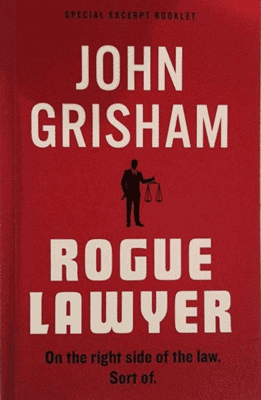
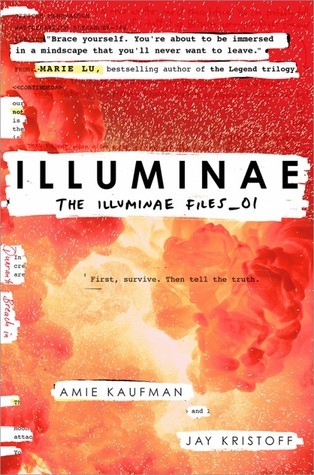
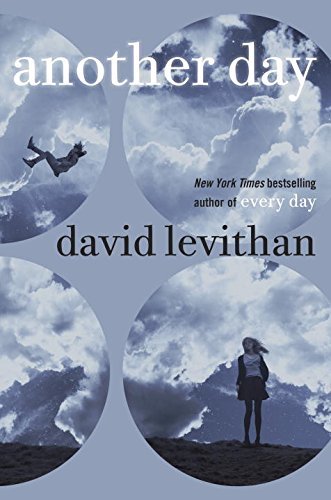
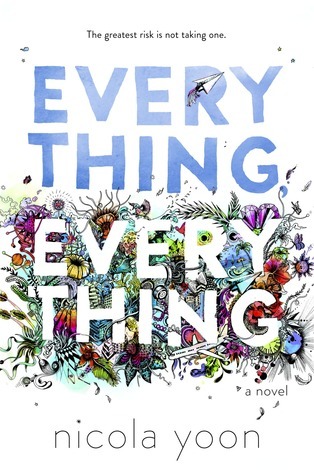

May 31, 2015
The Gilded Hour: Meet Jack Mezzanotte
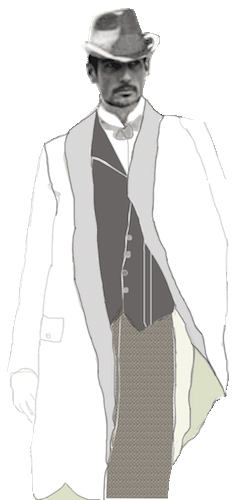
Jack Mezzanotte
The Gilded Hour website includes short character sketches of the novels main characters, including Jack Mezzanotte and Anna Savard. No spoilers, so feel free to go wander around.
I’ll let you know when I post more character bios.
Right now the comment function is misbehaving, but I hope to have that fixed soon. Remember that any comment left on this weblog or on the novel website will count toward the big big giveaway when the novel is released.
Tweet

May 30, 2015
BookExpo Exploits, and the First Giveaway
 As is often the case, my well-laid plans went agley. I meant to post and twit from the floor of BookExpo America, but technological issues and a number of other glitches kept that from happening.
As is often the case, my well-laid plans went agley. I meant to post and twit from the floor of BookExpo America, but technological issues and a number of other glitches kept that from happening.
Also, I did not nab as many books as I hoped. But I am still planning on drawing two names, and those two people will get signed ARCs of The Gilded Hour. Then I’ll toss a coin and one of them will get the stuff I managed to collect at BEA.
I just got home, and I’m not exactly awake so tomorrow I will post with the details. I’m also going to give y’all another couple of days to sign up for the drawing, as I just okayed a dozen new registrations and those people should have a chance to throw their names in the proverbial hat.
So please pardon me while I collapse. I have to convince my dogs that I am indeed home again, and then catch up on sleep. I’ll be back soon.
———
Image: Big yawn by twob on Flickr. Used under Creative Commons license.
Tweet

May 24, 2015
The big big giveaway
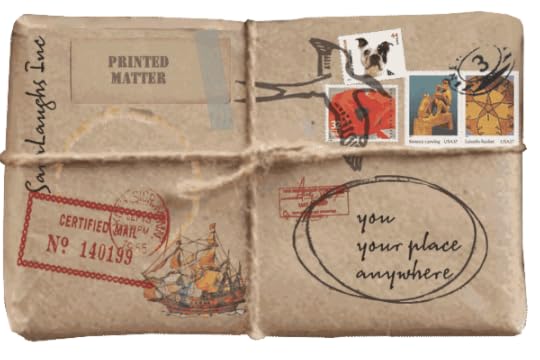 Between today and the official publication date of The Gilded Hour (September 1, 2015) anyone who leaves a comment on this weblog or The Gilded Hour website, on any page or post, will be entered into the big big giveaway. Each comment is another entry, but please note that I reserve the right to delete comments that are not on topic, that are mass produced or otherwise designed to stack the deck. The one name drawn from all comments will receive
Between today and the official publication date of The Gilded Hour (September 1, 2015) anyone who leaves a comment on this weblog or The Gilded Hour website, on any page or post, will be entered into the big big giveaway. Each comment is another entry, but please note that I reserve the right to delete comments that are not on topic, that are mass produced or otherwise designed to stack the deck. The one name drawn from all comments will receive
a signed first printing edition of The Gilded Hour
a new Kindle Paperwhite*
one coupon entitling the holder to an evaluation of a twenty-page double-spaced fiction manuscript. If you yourself don’t have a need for such a thing, you can sell or give away the coupon. I will provide the author of the piece with written feedback on the manuscript. I will dedicate no more than four hours to this evaluation. For editing and feedback I generally charge somewhere between $50 and $75 an hour.
other items that I will add over the course of the summer.
To comment on the weblog you need to first register by means of the link at the bottom of the page.
The drawing is open to everyone.
*If you don’t need or want a Kindle, I will substitute an Amazon gift certificate in the same value.
Tweet




